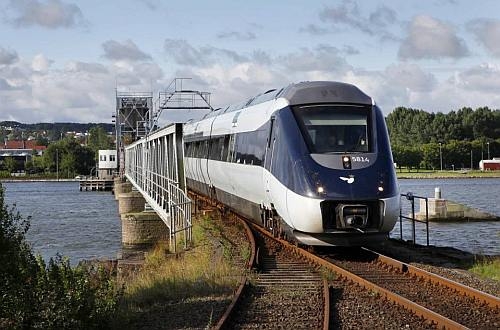Not only was the fleet of the105 trains delivered eight years by AnsaldoBreda – the last train arrived in October 2013, but they have also proved unreliable. "Most recently, poor communication between the sets, problems with the axleboxes, and manifold cracks have added to the list of challenges," says DSB. "Furthermore, one ongoing study, including the involvement of DB Systemtechnik, concluded that not all components are of the quality that one would wish."
DSB says this is in contrast with a report by Atkins in 2011 which concluded that the basic components and systems in IC4 trains were fundamentally sound and that IC4 had no significant technical problems. DSB says the Atkins report concluded that even with the necessary additional costs for upgrades, IC4 would continue to represent "value for money."
The "train fund" project to electrify more lines will probably mean that the IC4 trains will have a shorter life than expected. "In other words, we will get less benefit from solving the many challenges with IC4," says Mr Steen Schougaard Christensen, DSB's maintenance director.
In the light of these recent challenges and the changing circumstances, DSB wants independent experts to clarify whether it will still be financially viable and, in terms of risk, right to continue all or part of the work to bring the IC4 fleet to a level where the trains can be operated nationally as originally planned.
"We want the work to be completed quickly, but the main thing for us is that it is done thoroughly," says Christensen.
In the meantime, and unless new problems arise, work will continue to commission the IC4 trains.

